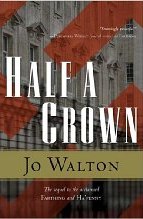“If you, my reader, have enough freedom from other serious matters to attend to this, I ask that you read my essay through, harboring neither contempt nor lack of sympathy, and that you ponder whether anything is sweeter or more desirable than a friend, one with whom you may talk about anything just as freely and safely as with yourself, and one who equally rejoices with you in all good, happy times and warms you with consolation in adversities. Such a friend, I know, is not easily found, and once found, may be lost, causing great torment to your soul. The passing of Roscius was such a heavy loss to me that I feel compelled to express this eulogy in the hope that it may help perpetuate or even enhance his memory. When posterity names the three or four most notable, long-standing pairs of friends, I hope the friendship of Minus Roscius and Philippo Beroaldo will be among them.”
Beroaldo, Filippo, 1500, Oratio Proverbiorum, Bologna.
Translated in Beroaldo, Filippo, 2009, “Appendix B: English Translation of Filippo Beroaldo’s Symbola Pythagorica (1503),” in Christiane L. Joost-Gaugier, Pythagoras and Renaissance Europe: Finding Heaven, Cambridge, 248-265.
If I could draw I’d draw Beroaldo
sitting, with pen in hand, and Roscius
behind him, hand on shoulder, bending low
to point a word to him, without a fuss.
Raphael could have caught them, full of light,
books on their desk, their hands with penman’s grip,
their thirty years of work to get things right
full of the joys of friendship, scholarship.
This world holds nothing better for the soul
a friend who you can talk to, work beside,
rejoice in good times, and in bad console,
and trust with thoughts that come back magnified…
…and lose, and grieve, across five hundred years
so all who have such friends are moved to tears.
March 1st 2015



